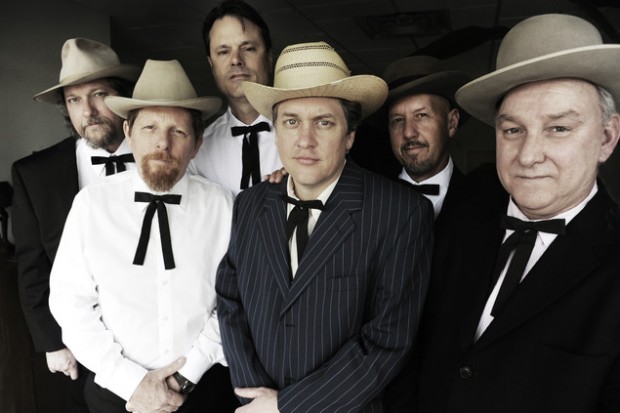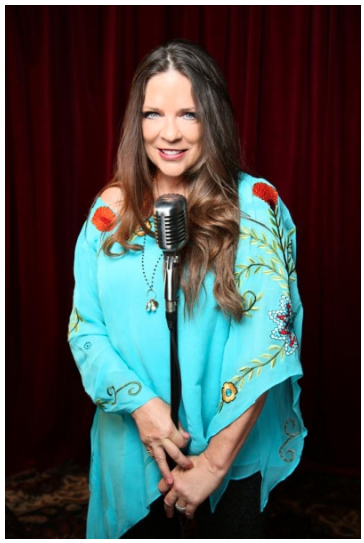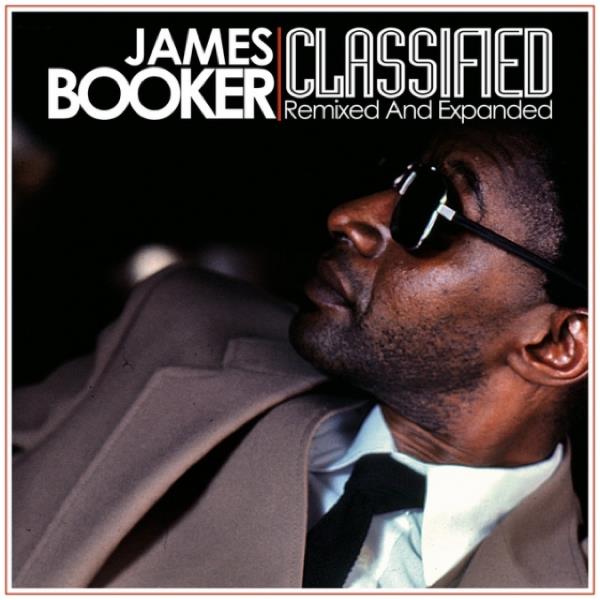
Béla Fleck & Abigail Washburn
record as a duo to be released
October 27
Washburn and Fleck playfully embrace the notion that they’ve become a family band. And at home, on stage or on record, it’s their deep bond, on top of the way their distinct musical personalities and banjo styles interact, that makes theirs a picking partnership unlike any other on the planet.
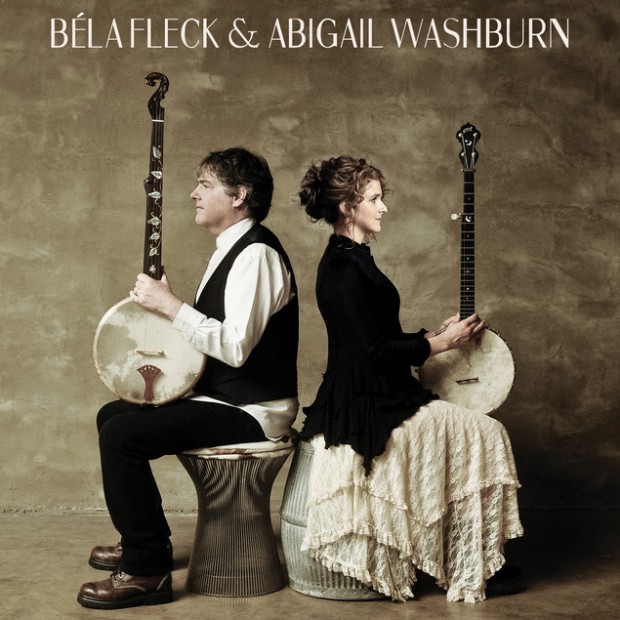
Béla Fleck & Abigail Washburn
Béla Fleck & Abigail Washburn
Sure, in the abstract, a banjo duo might seem like a musical concept beset by limitations. But when the banjo players cast in those roles are Abigail Washburn and Béla Fleck—she with the earthy sophistication of a postmodern, old-time singer-songwriter, he with the virtuosic, jazz-to-classical ingenuity of an iconic instrumentalist and composer with bluegrass roots— it’s a different matter entirely. There’s no denying that theirs is a one-of-a-kind pairing, with one-of-a-kind possibilities.
Fleck and Washburn have collaborated in the past, most visibly in their Sparrow Quartet with Casey Driessen and Ben Sollee. Until last fall, though, any performances they gave as a two-piece were decidedly informal, a pickin’ party here, a benefit show at Washburn’s grandmother’s Unitarian church there. It was inevitable and eagerly anticipated by fans of tradition-tweaking acoustic fare that these partners in music and life (who married in 2009) would eventually do a full-fledged project together.
Now that Fleck, a fifteen-time GRAMMY winner, has devoted time away from his standard-setting ensemble Béla Fleck and the Flecktones to a staggeringly broad array of musical experiments, from writing a concerto for the Nashville Symphony to exploring the banjo’s African roots to jazz duos with Chick Corea, while Washburn has drawn critical acclaim for her solo albums, done fascinating work in folk musical diplomacy in China, presented an original theatrical production, contributed to singular side groups Uncle Earl and The Wu-Force and become quite a live draw in her own right, the two of them decided they were ready to craft their debut album as a duo, Béla Fleck & Abigail Washburn (releasing October 27 on Rounder Records).
There was one other small, yet not at all insignificant factor in the timing: the birth of their son Juno. Says Fleck, “I come from a broken home, and I have a lot of musician friends who missed their kids’ childhoods because they were touring. The combination of those two things really made me not want to be one of those parents. I don’t want to be somebody that Juno sees only once in a while. We need to be together, and this is a way we can be together a whole lot more.”
That goes for touring and album-making both. Thanks to the fact that they have a first-rate studio on the premises, Fleck and Washburn could record at home—but that didn’t mean it was an easy process. Consumed with caring for their new baby and perpetually sleep-deprived, they had to get resourceful in order to carve out time to cut tracks.
“Béla is really the reason that it’s finished,” Washburn emphasizes. “There were a few months when Juno was a newborn that I just really had to have somebody say, ‘Hey, this is what we’re gonna do today.’ As long as I could spend a few hours a day between nursings, we could make some good progress on the record.”
The aim wasn’t simply to get the album done, but to make it feel satisfying and complete using only the sounds they could coax out of their bodies and their banjos. Says Fleck, “We didn’t want any other instruments on there, because we’re into this idea that we’re banjo players, and that should be enough. Why do you always have to have a rhythm section, a guitar player, a bass player or something? Sometimes when
you add other instruments, you take away from the ability of the banjo to show all its colors, which are actually quite beautiful.”
Washburn and Fleck didn’t confine themselves to playing their usual workhorses, her Ome Jubilee and his pre-war Gibson Mastertone Style 75. Between them, they used seven different banjos in all, including a cello banjo, a ukulele banjo that technically belongs to Juno and a baritone banjo that Fleck commissioned specifically for this album.
“We had this vision of playing different banjos in different registers,” he says, “finding a way to make every song have its own unique stamp, yet the whole project having a big, cohesive sound – with only two people.” (A giggling Juno is the only other person who appears anywhere on the album.)
From track to track, Washburn and Fleck are a nimble band unto themselves. On the trad tune “Railroad,” she sustains a droning feel, while he jabs in syncopated counterpoint. Woven into the middle of their arrangement is an excerpt from another American banjo chestnut, “Oh! Susanna,” an occasion for Fleck to briefly slip into a dixieland role. In their co-written original “Little Birdie“ he supplies what amounts to a ticklish, inventive bass line while she plays circling arpeggios and picks out the melody. “Bye Bye Baby Blues” is her turn to toy with droll, walking bass beneath his wonderfully jaunty licks. “What’cha Gonna Do,” which came entirely from his pen, lyrics and all, rides a churning groove made up of intertwining banjo figures and foot patting.
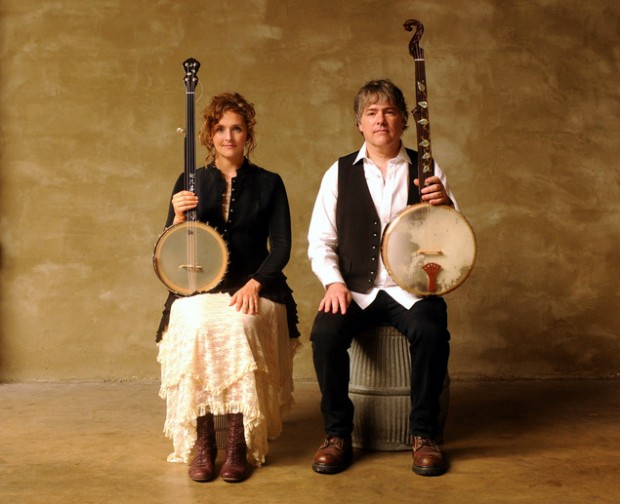
All that’s to say, there’s a ton going on rhythmically, tonally and melodically. Then there are the breathtaking ballads like Washburn’s “Ride To You” and the traditional “What Are They Doing In Heaven Today?,” which showcase the way she caresses a lyric with the hearty yet elegant empathy of her vocals. (The story goes that Fleck was so taken with her singing the first time he heard it on a recording that he lost track of how fast he was driving and got pulled over.) He’s singing harmony on a couple of tracks too, something he hasn’t had the chance to do since his New Grass Revival days.
You’d expect Fleck to take the lead during intricate instrumentals, but that’s not always the case here. In “New South Africa,” which came from his Flecktones repertoire, he and Washburn each take a turn out front. And if you listen to “banjo banjo” in stereo, it’s easy to make out the subtle rippling effect of the two players seamlessly trading notes during ascending and descending runs.
That kind of stuff was way out of Washburn’s comfort zone. “I come from the old-time world,” she says, “which is more about communally trancing out on old fiddle and banjo tunes. It has very little to do with soloing or anything technical or virtuosic. So for me to try to learn Béla’s music has been a big challenge, but a wonderful one. Although I’m a very different type of player, I feel very lucky that he’s a musical mentor to me. It’s a beautiful part of our connection.”
Fleck chimes in, “I’m a big fan of Abby’s playing. I know it so well that I could imagine the two of us playing these tunes together. I love looking at her playing and going, ‘What can I throw into your kettle of soup that would make it bubble up just a little bit?’”
The directness of her musical sensibilities had a profound effect on him, too. “I do a lot of heady music,” he explains, “and I’m always trying hard to keep soul and melodicism as important elements, but there’s also a lot of complexity going on. When I play with Abby, there’s an opportunity for me to make music that hits you in a different place emotionally. That’s one of her gifts, is a pure connection to the listener, taking
simpler ideas and imbuing them with a lot of personality and a point of view. I wanted to make sure that while I was respecting my own ability to play complex ideas, I was also part of making that feeling happen.”
A surprising number of the songs on the album address matters of life and death, a coincidence that Fleck and Washburn came to embrace. There are multiple meditations on the afterlife, one example being the Appalachian-accented “And Am I Born To Die,” which Washburn learned from a recording of one of her heroes, Doc Watson. And if they were going to record the Victorian murder ballad “Pretty Polly,” Washburn wanted to make sure that it was a version where Polly had a speaking part, and that it was immediately followed in the song sequence by her original “Shotgun Blues,” a song whose gist she summarizes as “I’m gonna come after that nasty, old man that keeps killing all those ladies in all those murder ballads.”
Of course, Fleck and Washburn also had a new life entrusted into their care, and were overwhelmed at times by how strong the protective parental instincts hit them. So, after recording one version of “Little Birdie,” they ultimately went with an alternate version where the mama bird saves the baby bird from a crocodile in the final verse. That one felt right.
Judging from the way Juno dances every time he hears it, his favorite song in the bunch is “Railroad.” In fact, Fleck suggested they work it up after he overheard her singing it to their newborn. (Washburn’s mother used to sing to her when she was little too.) Juno gets to hear rehearsals and sound checks a plenty, since he accompanies his parents to folk festivals, arts centers and theaters all across the country. But he’s typically already asleep in his very own bunk on the bus before the shows start.
Washburn and Fleck playfully embrace the notion that they’ve become a family band. And at home, on stage or on record, it’s their deep bond, on top of the way their distinct musical personalities and banjo styles interact, that makes theirs a picking partnership unlike any other on the planet.
Listen the new song ‘ Railroad ‘
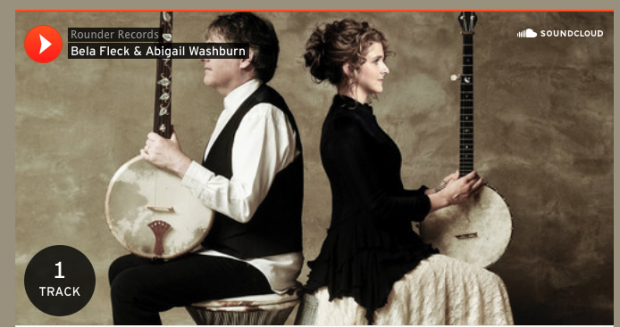
Tracklisting
1. Ride to You
2. What’cha Gonna Do
3. Little Birdie
4. New South Africa
5. Pretty Polly
6. Shotgun Blues
7. For Children:
No 3 Quasi adagio, No 10 Allegro molto – Children’s Dance
8. And Am I Born to Die
9. What Are They Doing in Heaven Today?
10. banjo banjo
11. Bye Bye Baby Blues
Béla’s Website
http://belafleck.com



Abigail’s Website
http://www.abigailwashburn.com




